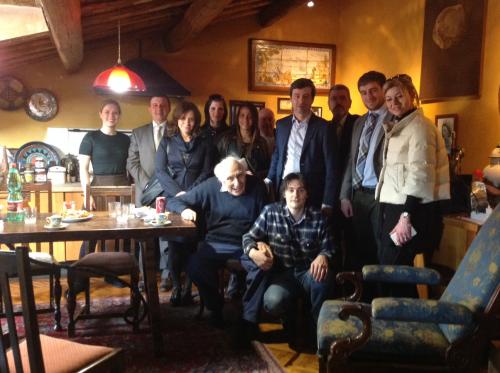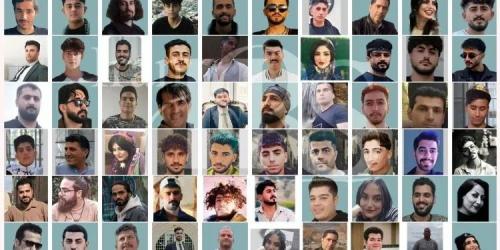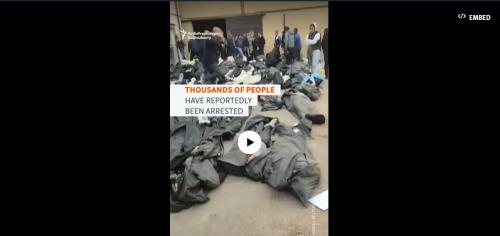02 March 2017 :
Mr. President, Senators,
With sincere emotion, I am taking the floor in this Assembly today to commemorate Marco Pannella.
I do not want that the words and nuances that have been uttered over the last few days and before, over the last few weeks, while his health conditions were worsening, drift away.
Words are very important and must be used with utmost care when paying tribute to a politician, a public figure. Even more so when that public figure is Marco Pannella, because all through his life words were the main weapon he handled in his nonviolent struggles.
His catchphrases, invective, provocative expressions were innovative in the verbose 19th-century-style political communication of the 70’s.
Someone could say that he introduced tools much used and even misused today. Someone could, but would be wrong, because Pannella’s mottoes were not instrumental to trivialities, neither did they prop up superficial words.
Surely, Pannella carried on struggles that were taking hold in society and his catchwords someway reflected already emerging social demands, but he also carried on struggles apparently light years away in the opinion of the Italian society of that time. He made his ability to communicate available for these struggles, also resorting to new forms of communication, not in order to obtain easy consent, but to cause uneasiness, to raise questions. They were the other side of the coin of his torrential oratory, his speeches fraught with parenthetical or incidental clauses, digressions difficult to follow without losing the thread, but they were just the opposite of trivialisation, they were an attempt to convey the complexity of the period we have been going through.
Many people who wanted to show him their affection paid Marco Pannella a visit at his home in Via della Panetteria. I myself called on Marco, together with four inmates of the Rebibbia prison of Rome. The activists of the Radical Party observe the commendable custom of visiting prisons in the Easter period and on the other main feast days of the year. Last time, due to his poor health conditions, Marco could not leave his house, so I decided to make him this present to show him my sincere gratitude for the commitment always displayed by the Italian Radicals and him for the protection of convicts’ rights. In his own words, a prison must not be a «structure of social persecution» for the solution of two problems that seem otherwise impossible to tackle, drug misuse and illegal immigration.
At Piazza Navona for a final farewell, I honestly acknowledged that credit had to be given mostly to him and Pope Francis for what had been made for Italian prisons over the last years, trying to put the issue in the limelight and improve detention conditions, to restore a sense of humanity in punishment, as enshrined in the Constitution.
This juxtaposition between the old libertarian and anticlerical Radical leader and the Roman Catholic Jesuit Pope coming from a country at the end of the Earth may seem peculiar, but there is an expression or, better, a principle that may bring them and many of us together: human dignity.
His absolutely secular faith in human dignity supported by an equally robust faith in law and liberties was Marco Pannella’s guiding star throughout his political and intellectual life.
He used his mottoes against demagogy, not for demagogy.
I think that what best confirms this statement is his last struggle, precisely the struggle on detention conditions, carried on in a fearful society ruled by the businessmen of fear, supported, in turn, by the media industry, the core business of which is often fear.
Under these conditions, standing on Cain’s side shows confidence in human liberty and dignity perhaps more than any other struggle.
In an article first published in a Spanish newspaper in 1987, Leonardo Sciascia – who was a friend of Pannella’s, so close to the Radicals that he accepted their proposal to run for both the European Parliament and the Italian Chamber of Deputies – wrote:
«Pannella, and the not many people who think and feel like him − among whom I take pride in including myself − have undertaken a demanding and difficult task: reminding the forgetful of the existence of law and forcefully assert it vis-à-vis the power games played by Italian politics taking advantage of the existing void or distortions in Law».
It was a negative opinion of Italian politics, while, conversely, absolutely praiseful towards Marco Pannella. He truly devoted his whole life to the struggles for the rule of law and legality; and he truly remained wary of power. Power, with its undeniable part of violence, often overwhelms and upsets, it distorts or tramples on the rules of law and democracy.
I would not be totally sincere, all the people here in this Chamber would not be totally sincere if we stated that we entirely agree with the idea expressed by Sciascia and often repeated, sometimes shouted, by Pannella that the political history of our country has been oppressed by the crushing burden of particracy. Like Emanuele Macaluso - who has just spoken about it in dissent with Pannella’s thought - I also think that the very crisis of the party system that has marked these last years shows that it causes more weakness rather than more stability in the institutions of the Republic.
However, his denunciation, and the inability of the ruling class to respond to such denunciation, reveal their heavy responsibility, since they had not been not able to see the crisis of that system and the urgency to respond to it.
So, if I were to tell the story of the democratic and antifascist Italy arisen from the Resistance period, it would differ in many parts from the one described by Marco.
But what is good for the quality of our democracy and its never adequate degree of freedom is the practice of distrust in power that Pannella constantly recommended.
A very influential French scholar, Pierre Rosanvallon, used the term «counter-democracy» in relation to those unconventional forms of politics towards which the democratic experiences of Western countries were evolving. I think that the Italian Radicals and Marco Pannella perfectly fall within this framework.
It is not outright rejection of politics or institutions. Quite the reverse. On the one side, it is the liberal inheritance of limitation of power through law; on the other side, they are forms of democratic involvement in individual issues considered in pragmatic and not ideological terms, often reminding elected powers that they have to fulfil their commitments and live up to their constitutional legality.
Never did the criticism levelled by Marco Pannella at Italian politics become anti-institutional sentiment.
Most struggles carried on by the Italian Radicals under the leadership of Marco Pannella can be seen from one or the other of these two perspectives. Not just the struggles for divorce and abortion during the epic period of civil rights in the 1970’s for which I think Italy owes gratitude to this man.
The referendum to repeal the Fortuna-Baslini Act that had introduced divorce in Italy was held on 12th and 13th May 1974. The ‘No’ won and, together with the subsequent Christian Democrat defeat in the local elections, it brought about a deep change in the political and social scenario of the Country.
Act nr. 194 on voluntary termination of pregnancy was adopted on 22nd May 1978, after approximately three years form the collection of signatures to decriminalise abortion. That Act would not have been introduced in the Italian legislation without the Radicals, although they promoted a new referendum in 1981 to repeal some sections of it and allow for complete decriminalisation.
Pannella and the Radicals have also been active on other issues. I am referring, in particular, to the campaigns regarding justice: against national emergency laws, for the civil liability of magistrates, against preventive detention, for the abolition of life imprisonment, for the rights of convicts and for amnesty.
Undeniably, Marco Pannella’s commitment has contributed to increasing attention and awareness of the Nation on all those issues, even when they were particularly controversial.
Similarly, in many other cases, his intuitions undeniably anticipated developments in politics and in society.
I would like to make two examples. The first one regards the environment. As early as in 1977, a clear ecological line against environmental pollution, food adulteration, land consumption and for the promotion of laws to protect nature and health could be found in the speeches and motions of the Radical Party Congress. The “Smiling Sun” symbol itself, used by the Greens, was offered to them by the Italian Radicals.
Now there is greater ecological awareness in political parties and society, but there is no doubt that the environment and its protection are no longer considered luxuries and have become key standards in lawmaking also thanks to the Radical thrust.
The other example I want to make refers to the transnational projection of the Radical Party and European federalism. I cannot tell how many times I heard Marco Pannella quote Ernesto Rossi, Altiero Spinelli and the Ventotene Manifesto.
I might make a mistake, but I reckon that Marco Pannella spent more years in the Strasbourg Parliament that in the Italian Parliament: in the lapse of time between 1979 and 2009, years in which the United States of Europe was a dream he constantly foretold but never attained.
In relation to his commitment in this sense, I would like to recall, in particular, a very significant moment: the establishment in 1981, upon the initiative of Altiero Spinelli himself, of a European Parliament Committee on Institutional Affairs entrusted with introducing modifications in the existing Treaties with a view to promoting the completion of the European Community political integration. In that Committee, the Radical leader was elected Vice President.
I think I am not wrong when I say that, in that case too, Pannella was a forerunner and, perhaps, he was not sufficiently understood: the European Single Act adopted in December 1985 in Luxemburg did not redefine the Union according to the guidelines set by the Strasbourg Parliament but confined itself to creating the internal market by 31st December 1992. So the political issues had been circumvented and the Union is still paying the price for that.
I am realising that my words may not reflect the unrestrained, histrionic, sometimes irritating traits of that cumbersome and, under many aspects, extra-ordinary, personality. While paying tribute to his intuitions and his struggles, I am perhaps overlooking a political style that certainly was a really unique exception in the Italian – I would rather say European – context. I do not want to be unfair to Marco Pannella and the Radicals depicting them in clothes that were not and could not be theirs.
Therefore, I hasten to mention their hunger and thirst strikes, the actions of civil disobedience, the provocations such as appearing gagged in a RAI TV studio to protest against the way in which the national broadcasting company (mis)provided information to the general public, or the distribution to passers-by of the money received through the State financing of parties, with notes bearing the stamp of the Radical Party.
Even this Assembly, even the parliamentary institutions of the Republic and the European Community were repeatedly «challenged» – I am saying that with maximum respect and consideration, but also frankness – with the scandal that Marco and the Radicals were able to embody: I am referring to filibustering but also the controversial candidates proposed by the Radical Party.
However, I feel the duty to remind that the Radicals and Marco Pannella, with the nonviolent method they employed, wrote pages that will remain indelible in the history of Italy.
He appealed to the Italian civil conscience with the Enzo Tortora case. Enzo Tortora was arrested together with hundreds of other people for drug dealing and Camorra-style conspiracy at 4 a.m. on 17th June 1983 on the basis of allegations by criminals who had turned State evidence that were eventually proved to be fabricated and groundless. Pannella immediately embraced his cause and proposed him to run for the European Parliament, with strong reactions in the public opinion, a public opinion, at that time just like now, often pressed to pass a sentence even before understanding.
After the first-instance sentence, over two years after imprisonment, but long before all charges were completely dismissed, Tortora was elected President of the Radical Party.
Admittedly, Pannella had seen things right. And the Radicals proposed a referendum on civil liability of magistrates the effects of which have been felt even in this Parliament, with the new legislation passed on this subject last year.
What I want to stress again is what I have already said at the beginning of this speech: as far as justice, rights, guarantees, the fundamental aspects of a liberal juridical civilisation are concerned, the Radical culture and Marco Pannella have been making an essential contribution.
Such contribution has extended beyond national boundaries, with the struggle to establish the International Criminal Court of The Hague and the campaign against the death penalty in the world. Important elements not only of sensitivity but also of the supranational legal system are therefore linked to the political commitment of Pannella and the Transnational Radical Party he founded.
The fronts opened by Pannella are many. A speech cannot encompass them all, but it is admirable that they have all been encompassed in one single life: the campaign against hunger in the world, those for the legalisation of soft drugs, on conscientious objection, the most recent struggles on artificial fertilisation and euthanasia... I just mention them to invite you to consider that they are all fundamental questions that society will inevitably have to thoroughly explore.
Mr President, Senators,
On 16th July 1974 – just after the referendum on divorce – an explosive article by Pier Paolo Pasolini entitled «Let’s open a debate on the Pannella case» appeared on the front page of Corriere della Sera. Pannella was on a very long hunger strike those weeks, among other things to be admitted to RAI TV programmes. Pasolini criticised both the clericalism of the Christian Democrats and Fanfani and the political realism of the Communist Party, deaf to the questions raised by the Radical leader. He set Pannellas’s candour against both.
After meeting Pannella for the last time, on Easter this year, I can say that I still do not agree with the particular harshness of Pasolinis’s words but, perhaps, I now understand better what he meant by Marco’s candour. I think I have seen it, I have seen that candour.
Though Pannella was a thorny subject for a debate then just as it is now, I think that the best way to remember a man responsible for many irritations but to whom we owe much gratitude is that of starting that debate again.
So I hope that my words are not perceived as the conclusion of a chapter of the Italian history but the starting point to write a new one.
Finally, I hope that, with the same spirit of open-mindedness, curiosity about the times that are ahead of us, readiness for always straightforward, albeit tough, exchanges of views that are at the basis of parliamentary institutions, it is possible to tackle the political and institutional issues that the Country is and will be confronted with.
Thank you.
* Speech commemorating Marco Pannella
Senate of the Italian Republic, 25th May 2016








